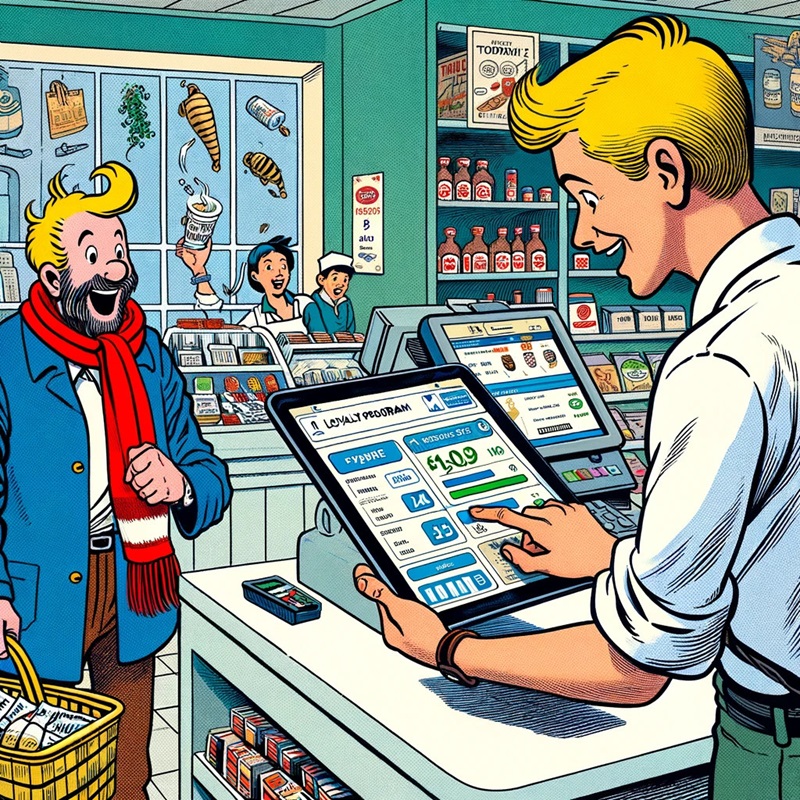
Factors When Choosing a POS Terminal Vendor
When choosing a POS terminal vendor, it’s crucial to consider the financial stability and longevity of the company. A vendor with a stable financial background is more likely to invest in the continuous improvement of their products and services. This means regular software updates, enhanced security features, and better overall support. A financially sound vendor is less likely to go out of business, ensuring that you won’t be left without support or needing to switch systems unexpectedly.
Evaluating the vendor’s history and financial health can also provide insights into their reliability and trustworthiness. Look for vendors with a long-standing presence in the market, as this often indicates a proven track record of customer satisfaction and business resilience. You can review financial reports, industry analyses, and customer testimonials to assess their stability. Choosing a vendor with a solid financial footing ensures that your POS system will be supported and maintained well into the future.
Customization Options
A POS system that offers customization options can be tailored to meet the specific needs of your business, providing a significant advantage over more rigid, one-size-fits-all solutions. Customizable features might include personalized dashboards, configurable reports, and the ability to add or modify functionalities to better align with your business processes. This flexibility ensures that the system can grow and adapt as your business evolves, making it a long-term solution rather than a temporary fix.
Working with a vendor that offers customization also means that you can create a more efficient workflow tailored to your unique operational needs. For example, a retail store might prioritize inventory management features, while a restaurant might need advanced table management and order processing capabilities. By choosing a POS system that can be customized, you ensure that it will support your specific business model, enhancing productivity and overall customer satisfaction.
User Training and Onboarding
Effective user training and onboarding are essential for ensuring that your staff can fully utilize the capabilities of your new POS system. A comprehensive training program provided by the vendor can help your team quickly adapt to the new system, minimizing the learning curve and reducing the likelihood of errors. Training options might include in-person sessions, online courses, video tutorials, and detailed user manuals, catering to different learning preferences and schedules.
Onboarding support is equally important, as it helps integrate the POS system into your daily operations smoothly. A well-structured onboarding process should include assistance with initial setup, data migration, and configuration according to your business requirements. Vendors that offer robust training and onboarding services demonstrate a commitment to customer success, ensuring that you can maximize the benefits of your investment from day one.
Software Updates and Upgrades
Regular software updates and upgrades are critical to keeping your POS system secure, efficient, and up-to-date with the latest features. Vendors that prioritize frequent updates can quickly address security vulnerabilities, ensuring that your system is protected against new threats. Additionally, updates can introduce new functionalities and improvements that enhance the overall user experience and operational efficiency.
Understanding how a vendor manages updates and upgrades is essential for planning and minimizing disruptions to your business. Some vendors might offer automatic updates that require minimal intervention, while others might need scheduled downtime for major upgrades. It’s important to clarify any associated costs and how these updates will be implemented to ensure that your POS system remains cutting-edge and continues to meet your evolving business needs.
Payment Processing Flexibility
In today’s diverse payment landscape, offering multiple payment options is crucial for enhancing customer satisfaction and streamlining the checkout process. A flexible POS system should support a wide range of payment methods, including credit and debit cards, mobile payments, and contactless options like Apple Pay and Google Wallet. This versatility ensures that you can accommodate the payment preferences of all your customers, reducing friction at the point of sale.
Additionally, a POS system that can easily integrate with various payment processors can help you secure better transaction rates and terms. By having the flexibility to choose or switch payment processors, you can optimize costs and improve your bottom line. Discussing payment processing capabilities with potential vendors can help you ensure that the system will meet your current and future payment needs, contributing to a seamless and efficient customer experience.
Reporting and Analytics Capabilities
Robust reporting and analytics capabilities are essential for making data-driven business decisions. A POS system that provides detailed insights into sales, inventory, and customer behavior can help you identify trends, optimize operations, and uncover growth opportunities. Customizable reports allow you to focus on the metrics that matter most to your business, whether it’s daily sales summaries, inventory turnover rates, or employee performance metrics.
Advanced analytics features can also provide predictive insights, helping you anticipate customer needs and adjust your strategies accordingly. For example, understanding peak sales times can assist in staffing decisions, while tracking popular products can inform inventory management. By leveraging the reporting and analytics capabilities of your POS system, you can make informed decisions that drive efficiency, profitability, and customer satisfaction.
Third-Party Integrations
The ability to seamlessly integrate with third-party applications and services is a significant advantage for any POS system. Integration with accounting software, e-commerce platforms, marketing tools, and customer relationship management (CRM) systems can streamline workflows and improve data accuracy. This interconnected approach reduces manual data entry, minimizes errors, and ensures that information flows smoothly across different aspects of your business.
When evaluating POS vendors, it’s important to assess their integration capabilities and the ease of connecting with other systems you use. Some vendors offer built-in integrations with popular third-party applications, while others provide APIs for custom integrations. Understanding these options can help you choose a POS system that enhances overall business efficiency and supports your specific operational needs, creating a cohesive and efficient technology ecosystem.
Cloud-Based vs. On-Premise Solutions
Choosing between a cloud-based and an on-premise POS system involves weighing the advantages and disadvantages of each approach. Cloud-based POS systems offer the benefit of remote access, allowing you to manage your business from anywhere with an internet connection. These systems typically provide automatic updates, ensuring that you always have the latest features and security patches. Additionally, cloud-based solutions often involve lower upfront costs, as they do not require extensive hardware installations.
On-premise POS systems, on the other hand, offer greater control over your data and can operate independently of an internet connection, which can be beneficial in areas with unreliable connectivity. These systems might have higher initial costs due to hardware requirements and setup, but they can offer enhanced customization and security for businesses that prefer to keep their data on-site. Understanding the specific needs and preferences of your business can help you make an informed decision between cloud-based and on-premise POS solutions.
Mobile POS Capabilities
The rise of mobile POS systems has revolutionized how businesses conduct transactions, especially for those that require flexibility and mobility. Mobile POS solutions are ideal for food trucks, pop-up shops, trade shows, and on-site services, providing the ability to process payments anywhere. These systems typically run on smartphones or tablets, offering a portable and convenient alternative to traditional POS terminals.
In addition to flexibility, mobile POS systems can enhance customer experience by reducing wait times and enabling staff to assist customers more effectively. For example, in a retail setting, associates can check inventory and process transactions on the sales floor, providing a more personalized service. Evaluating the mobile capabilities of a POS system can help you choose a solution that supports your business’s need for mobility and convenience.
Customer Loyalty Programs and Marketing Tools
Incorporating customer loyalty programs and marketing tools into your POS system can significantly boost customer retention and sales. Loyalty programs encourage repeat business by rewarding customers for their purchases, while integrated marketing tools allow you to create targeted promotions and personalized offers. A POS system with built-in loyalty and marketing features streamlines these processes, making it easier to manage and track customer engagement.
Discussing these features with potential vendors can help you understand how their system can support your marketing efforts and enhance customer relationships. Effective loyalty programs and marketing tools can provide valuable insights into customer preferences and behaviors, allowing you to tailor your strategies and promotions more effectively. By leveraging these capabilities, you can build stronger customer connections and drive long-term business growth.
Download our Vendor Selection White Paper
This white paper aims to guide businesses through the process of selecting a payment terminal vendor by examining essential considerations such as security features, integration capabilities, user experience, and cost implications.

